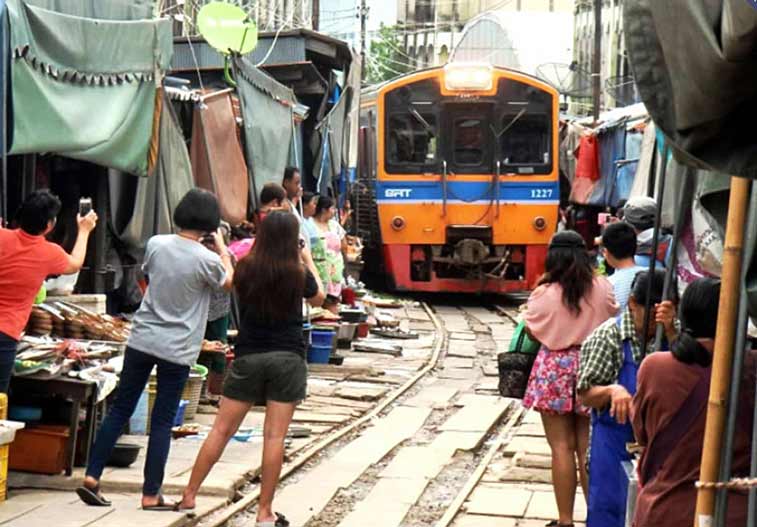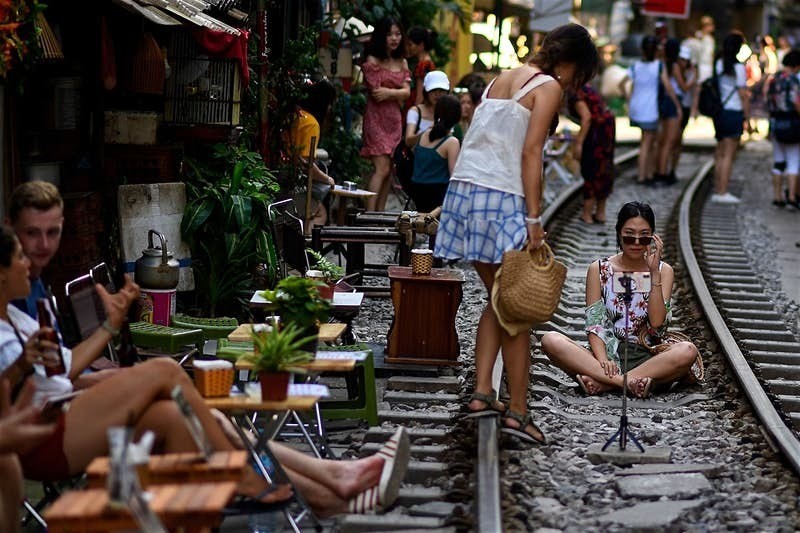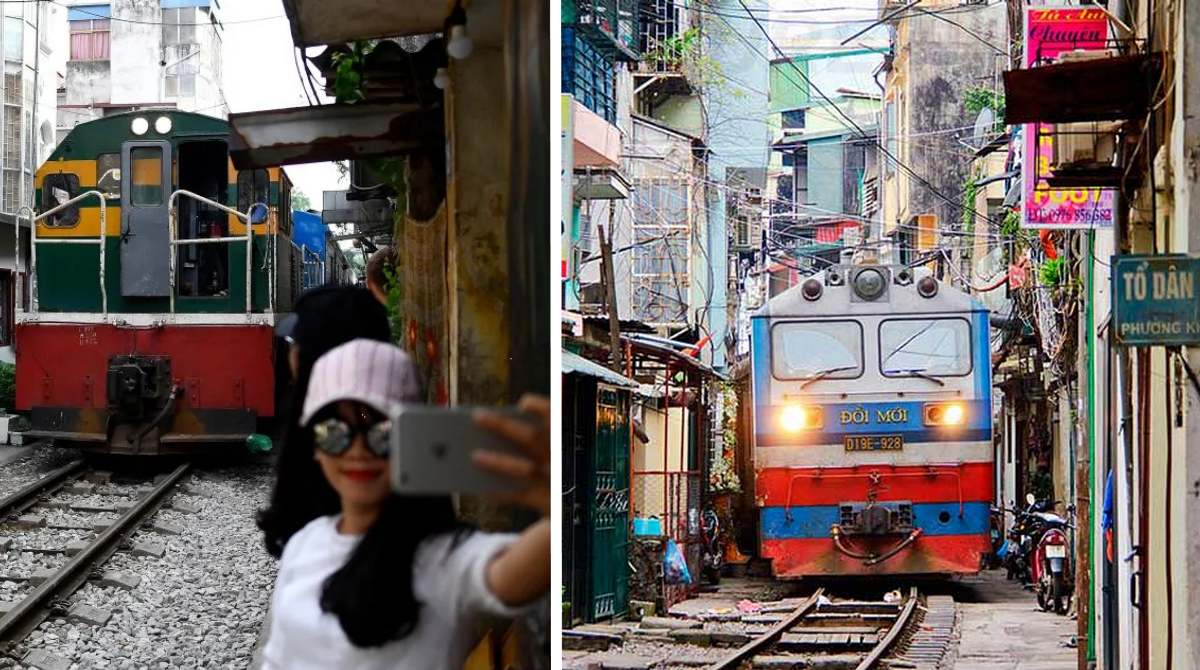In Vietnam, the struggle that was interrupted by the pandemic has resumed again – the Hanoi authorities are trying to protect a well-known informal attraction from tourists. We are talking about “Train Street”, where trains rumble just a few meters from ordinary life, where tourists willingly take pictures and take seats in cafes. The official goal is safety, accidents have already happened here.
Built by the former French colonial rulers of Vietnam in 1902, the railway runs through the heart of the bustling Old Quarter of Hanoi. In the pre-Kovid era, in just a few years, the road turned into one of the most iconic tourist attractions of the city. However, the authorities tried to protect tourists – but there was a pandemic closure here.
Once again, Train Street is suffering from over-tourism, with Hanoi authorities saying they have issued a document calling for tougher penalties on businesses operating along the street and ordering travel agencies not to organize group tours to the site.

The main reason is security. Even local travel agents confirm that “forgetful tourists are constantly teetering on the brink of disaster” and accidents have already happened. The owners of small shops and cafes have to take care of the safety of visitors who do not know at what distance it is safe to stand. “Sometimes you just have to shout at them to get them to come inside,” the guides say.
Over the past few years, as foot traffic in the area has skyrocketed, trains have had to apply emergency brakes many times because of tourists who have come in dangerous proximity, including standing next to the tracks and even sitting on the tracks, authorities say. There were also accidents – yes, a train hit a Korean tourist – fortunately, there were no deaths.

Amid growing concerns about accidents at the crossing, authorities ordered the site to be closed as early as 2019. But as soon as Vietnam opened its borders last year, visitors returned to Train Street in droves, forcing the authorities to intervene again. Among other things, they revoke business licenses from the owners of local businesses and try to barricade the most dangerous sections of the street.
“We do not trade people’s safety for any financial benefit,” local officials say. But Train Street residents, many of whom depend on tourism for their livelihoods, are pleading to be allowed to continue working legally. And tourists learn about “secret paths” and gather in the open areas of “Train Street”. As a result, tourism and the authorities will have to find some kind of “golden means”, assure local travel agents.

